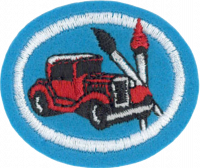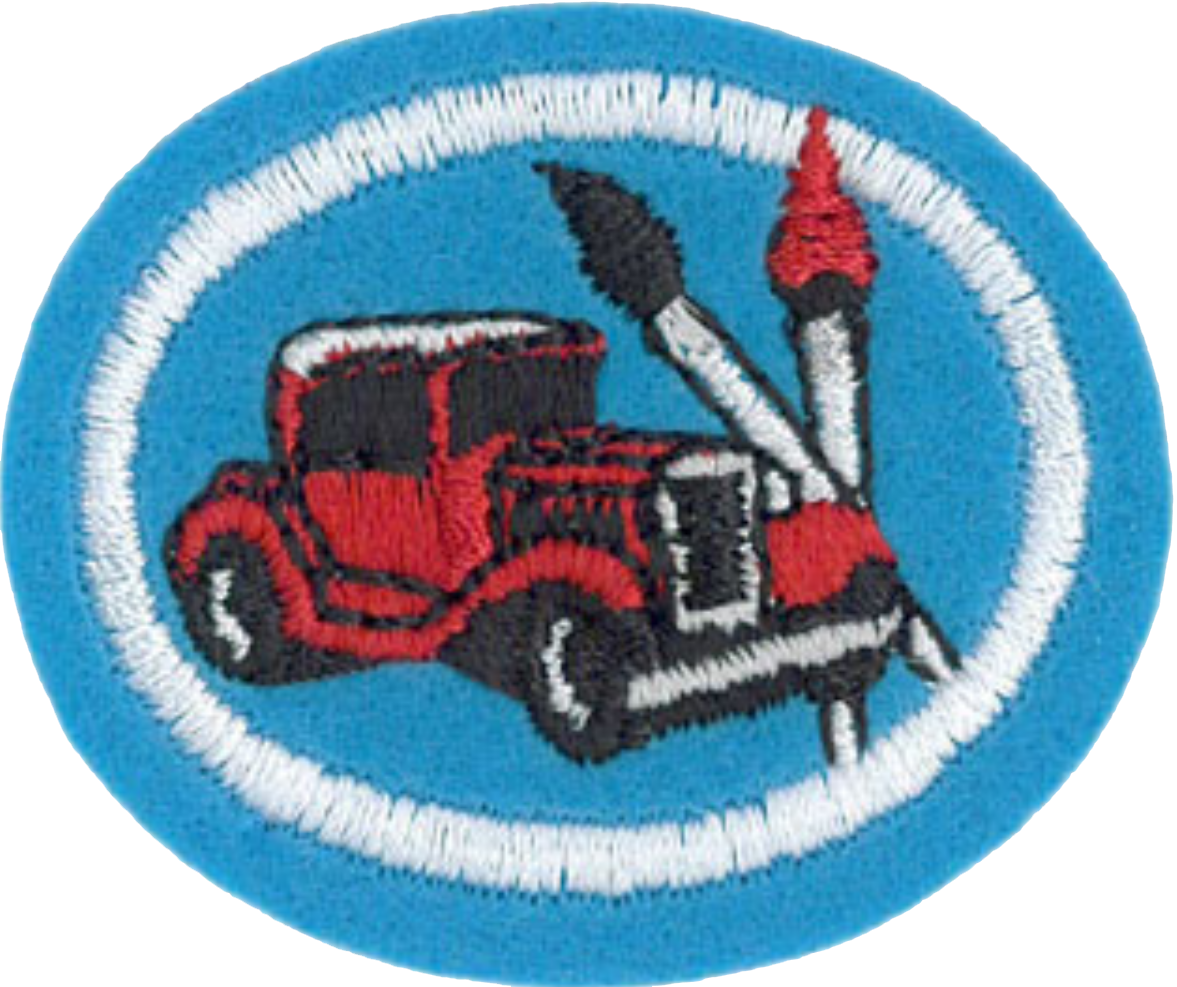AY Honors/Model Cars/Answer Key
1
Plastic model kits can be bought at most hobby shops and craft stores. You can also find them on the Internet, consignment shops, yard sales, thrift stores, and at large retailers.
The requirement that the car be "stock" means that the car must be assembled as per the basic instructions that come with the kit to look like the prototype, but which could be painted in any of a variety of colors. In fact, painting a plastic model is the most critical step to make the model look like a miniature real car. It does not mean that it must be a racing "stock" car.
Most kits require model glue, a craft knife (or sprue cutter), tweezers, and paint and paint brush or spray paint. Some kits are snap-together, but the better ones require glue. These items can be purchased in the same places that sell model cars.
2
The real fun of model car building is in personalizing and customizing your model to make it unique and interesting.
Some car kits come with extra parts that can be used to modify or change the outlook of the finished car. Take these parts or another entire car kit and mix them to create an entirely new car look. An example would be to take the "chrome" side exhaust from a dodge viper or older corvette model and apply it to the sides of another vehicle or the spoiler from an foreign model car or even a "tuner car" and add it to a car without a spoiler to make it look more sporty. Many after market accessories can be purchased or fabricated.
Painting is actually one of the first steps before model assembly. The paint may come with the model, or you may have to buy it separately. If you buy it separately, then try some different paint jobs. There are many different painting techniques to explore in model building. Consider different types of paint and different looks. Do you want your sports car model to have a showroom shine or maybe your model Jeep to look like it just came out of a mud bog! Look at the links in the reference section for guidance and ideas.
3
You might look in the encyclopedia for some information about automobile history, car history, or any other number of variations. Try looking up other books in a near by library. If there is a museum that has an exhibit or focuses on cars, try these, as they almost always have excellent information. You might also try informational websites like http://www.about.com or http://www.themuseumofautomobilehistory.com/.
When this honor was first published automobiles had just become common place and many people would remember horse and buggies. Now, there is a lot of automobile history to consider. For your report you may wish to focus on an aspect of automobile history. Examples might include: racing cars, electric cars, growth and change in automobile manufacturing in your country etc. consider posting your report on your blog or a web 2.0 site so others can read the results of your research.


